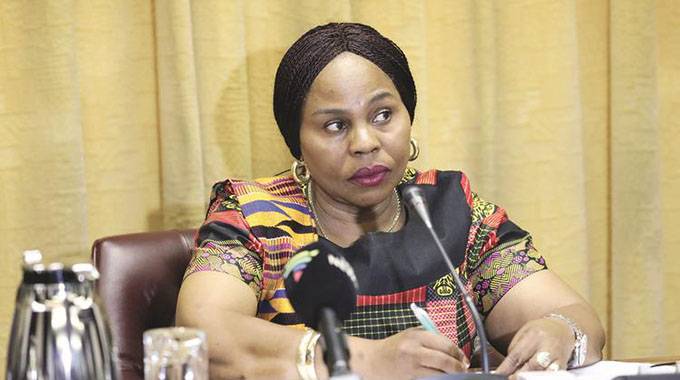‘Collaboration critical to drive MSMEs growth’
THERE is need for collaboration among stakeholders in the Micro, Small to Medium enterprises (MSMEs) sector to promote and develop the entrepreneurial spirit and build prosperous small businesses to achieve the country’s growth targets, including the Vision of empowered Upper Middle Income economy by 2030.
This was said by Minister for Women Affairs, Community, Small and Medium Enterprises Development, Monica Mutsvangwa at the Zimbabwe Smart Township & Rural Opportunities Forum held at the Harare International Conference Centre last Thursday.
This comes as MSMEs continue to be constrained by several factors in their business operations such as lack of access to markets, limited workspace, and constraints in accessing affordable finance , hindering SMEs.
In terms of finance, some lenders view SMEs as high risk due to the lack of collateral security making it difficult for them to secure the capital they need to invest, expand and
compete.
This lack of access to finance and lack of essential business development services stifles their potential and hinders their contribution to the economy.
Traditional funding institutions such as banks, have repeatedly avoided this vital sector of the market in preference for larger commercial and industrial projects.
As such Minister Mutsvangwa implored key stakeholders to assist in the up-liftment of small businesses, which now account for a significant part of Zimbabwe’s economy.
“By forging financial partnerships and linkages, we can bridge the gap between SMEs and the resources they need to invest.
There is potential through collaboration amongst financial institutions, Government and other stakeholders to create tailored financing solutions for SMEs.
These partnerships can also provide access to capital,mentorship, and resources enabling SMEs to scale up and thrive,” said Minister Mutsvangwa. She said the MSMEs sector continued to play a crucial role in Zimbabwe’s economy, accounting for over 60 percent of the country’s economic activity.
Consequently, MSMEs significantly contribute to employment in the country with 4,8 million people employed on full-time basis (MSME Survey 2021) in various sectors such as manufacturing, retail, transportation, mining, energy, construction and services, among others.
The FinScope MSME survey of 2022results indicate that approximately 60 percent of MSMEs do not save and only 3 percent of the business owners use formal savings products from banks.
Financial inclusion initiatives by the Government are now targeting improving savings culture and the use of the formal financial services sector to drive growth among MSMEs.
While significant progress has been made in facilitating access to finance for MSMEs, more needs to be done for rural communities, smallholder farmers, persons with disabilities, the elderly and pensioners, many of whom remain marginalised. The Smart Townships & Rural Opportunities Forum attracted delegates and exhibitors from MSMEs, development partners, renewable energy providers, local authorities, state-owned enterprises, advisory firms, the mining sector, agro-industries, food producers, universities, researchers,banks, investors, pension funds, accounting firms, and several other key stakeholders.-herald









